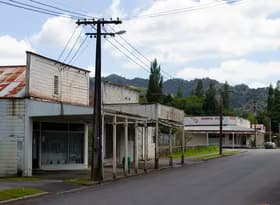Being impoverished and on a high income is just a myth
This article first appeared on Stuff.
Who are the 30,000 households earning over $100,000pa that don’t think they have enough money to get by? Is this real financial hardship or, as Mike Hosking put it, are these people “just useless with money”?
I’d love to rant about people who upgrade their phone or car every year and regularly go on expensive overseas holidays, only to complain that they don’t have enough money. However, digging into the data suggests there aren’t actually many of these people around.
Households with children, including adult children, are typically overrepresented in the higher-income brackets, as well as multi-family households and people in flatting situations.
Suddenly the picture becomes clearer. At the 2013 census, about 22,000 households earning over $100,000pa consisted of two or more families. I’d bet that most of these people were sharing accommodation due to a combination of low incomes and high housing costs. This situation is the epitome of “not having enough income to meet your everyday needs”.
It’s also easy to imagine that at least some of the 14,400 flatting households earning over $100,000 feel like they’re struggling. For example, a four-person flat, with each person earning $25,000pa, is unlikely to feel well-off. Strip these households out, and we’re left with a much smaller pool of potential financial incompetents.
Higher-income households are also more likely to have a mortgage. In Auckland, a couple buying a house at the median price of $850,000 would now need an income of about $110,000pa to get a mortgage. If they have kids, you can add another $10,000-20,000pa onto the required income. So for aspiring homeowners in Auckland, an income of $100,000pa won’t get you very far.
Given the surge in house prices in recent years, perhaps the most surprising aspect of the data is that the proportion of households who feel like they don’t have enough income has been declining since 2010 – not just for those on higher incomes, but across the board. In other words, the strength of New Zealand’s economic performance and the tightening labour market over the last five years have boosted the financial wellbeing of people (see Graph 1).
Graph 1

That’s not to downplay the plight of those people who are struggling to make ends meet or having their household budgets squeezed by rising house prices and energy costs. Housing affordability remains a critical issue. If soaring house prices and large deposit requirements are forcing people into a lifetime of renting, we potentially face a growing future divide between the “haves” and the “have-nots”. People owning their own property face much lower accommodation costs during retirement than people who are still renting – and those who are renting were probably poorer to start with.
For now, though, if you’re a couple or a regular family and not trying to get on the Auckland property ladder, an income of $100,000pa seems to be enough.















